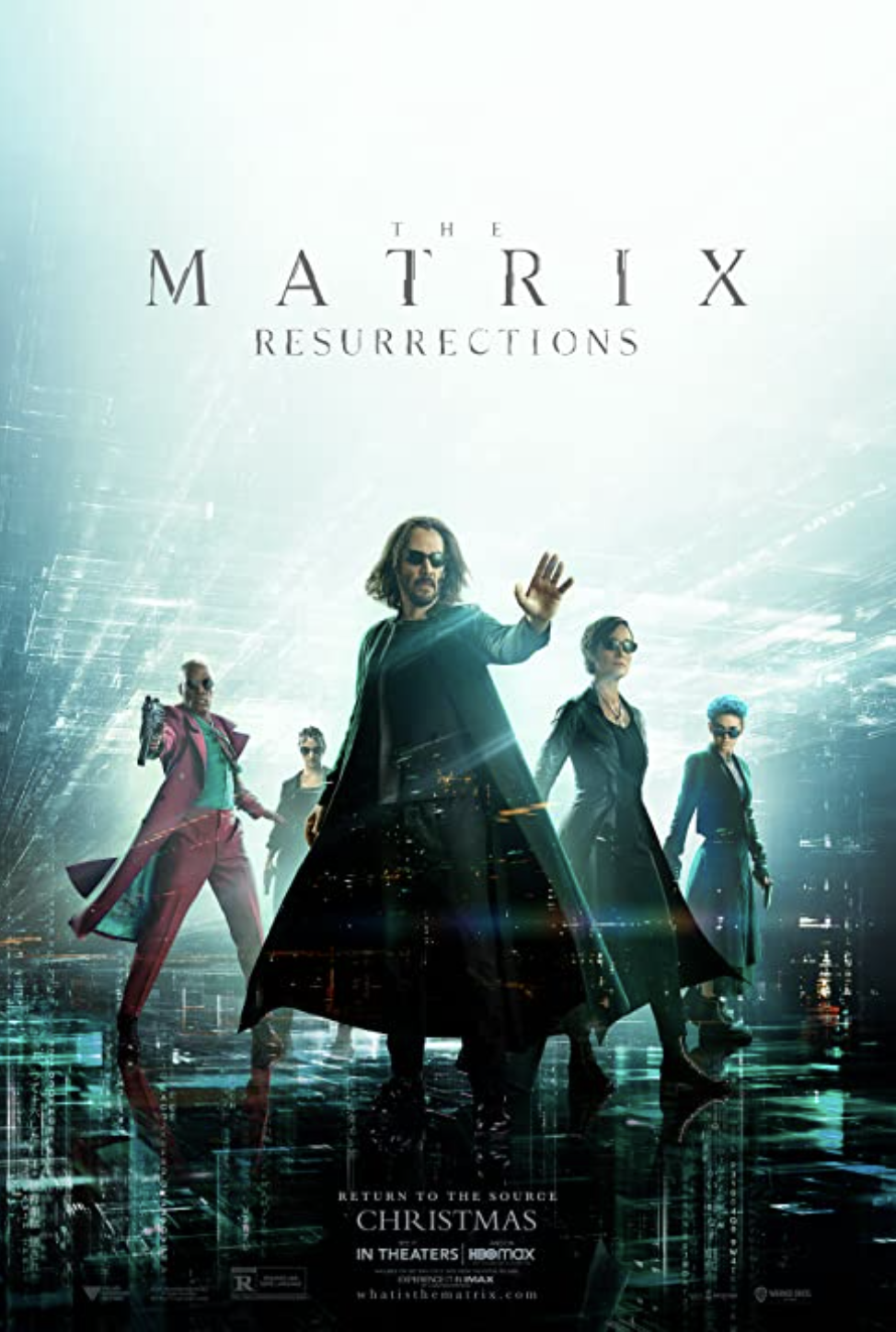Actually: 8.5 / Grade: B+
Can we talk about The Matrix franchise? I mean really talk about it. Talk about how influential it is, how it changed how action films are shot, the way sci-fi is presented to the mainstream, how it defined the way on screen storytelling can be pop culture and philosophical and high-octane and anime styled and mind-bending simultaneously. Can we talk about the fact the first film felt like it was pulled from my head and it will always feel like it belongs to me?
I do not often speak of Reloaded or Revolutions but, The Matrix (1999) can still wake me up out of bed to ponder what it means and whathahell the Machines were thinking. No cap [read: lies]. Twenty-two years later I popped up at 4am and dictated the following to Siri:
Why the Machines Were Too Impatient in The Matrix
In The Matrix, one of the central precepts is that human beings cannot live in a utopian world, designed by the Machines, because they/we keep trying to wake ourselves up. Those perfect simulations of life made us uncomfortable. We kept waiting for the other shoe to drop.

I say that the Machines were far too impatient. Within one generation, likely, maybe two, human beings would have accepted an idyllic life. Why? It is simply because the humans implanted into the matrix from the real world (outside) had learned life is messy AF, with its joys and devastations. Those humans knew nothing in life could be perfect. Even those who had lived the very best of lives understood that. For them their disappointments—no matter how shallow in comparison with people who had faced real difficulties in life—those subjectively minor disappointments were still filled with pain.
People raised inside the system (coppertops if you want to be equally messy) would’ve easily accepted a utopia because they wouldn’t have known anything else. For them, life could always be good and easy and fulfilling. Therefore those raised on the inside could’ve become the best batteries, because they would’ve lived the lives of their dreams full of buzzy electric potential. The whole idea of: What would you do if you could not fail? EVERYTHING. Why not? If it’s all computer-generated, everyone could win. Those humans would’ve lived longer healthy lives full of serotonin and energy. Challenges actually would have made those idyllic lives even more fulfilling—there’s nothing like a win you fight or work for. I say, the Machines were too impatient. Or maybe what I’m realizing is: We humans would’ve been far more devious.

Twenty-two years later and I’m still thinking about The Matrix. Two decades later and it returns to electrify all over again. And this time it dares to challenge my early morning musings the same way it inspired them.
In The Matrix Resurrections, director and co-writer Lana Wachowski gives us a clue in the title. This is a resurrection of the excitement and sense of wonder we felt when we watched the first Matrix. It’s damn near impossible for a franchise that is already a game changer, having been copied so many times, to re-excite us with both nostalgia and something new; yet Resurrections does both full blaze.
Honestly, to be perfectly real, that’s what I want to tell you. The cast is fire. The visuals are ocular candy. There’s an epic love story that makes me squeal. And the film is meta, doing what the franchise does in examining who we are, what society forces on us, and the ways we might break free.
The Matrix Resurrections is so good. Especially if you invested in this universe like I am.
***Full disclosure*** I adore Keanu Reeves. Not in a cute or fuzzy way. It’s like I own stock in adoring him—I’m invested. Just so you know.
So, In the End: Go and let The Matrix fry your brain all over again, the buzz is a serious high.



